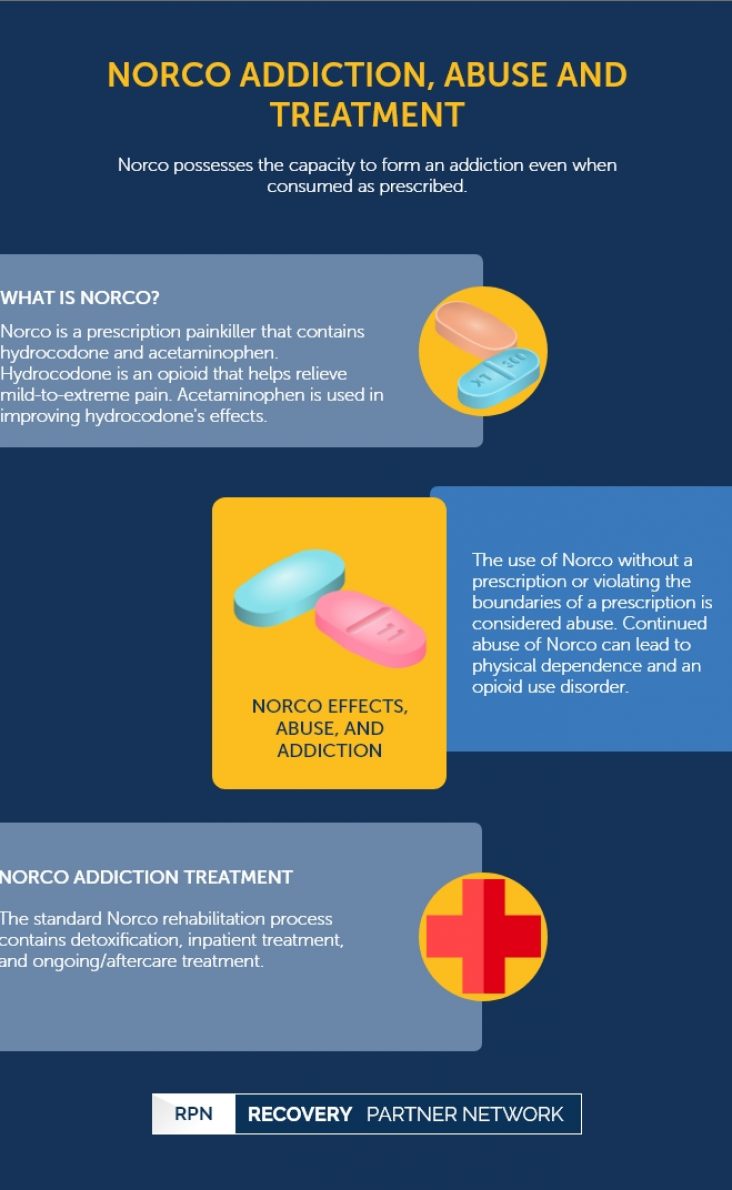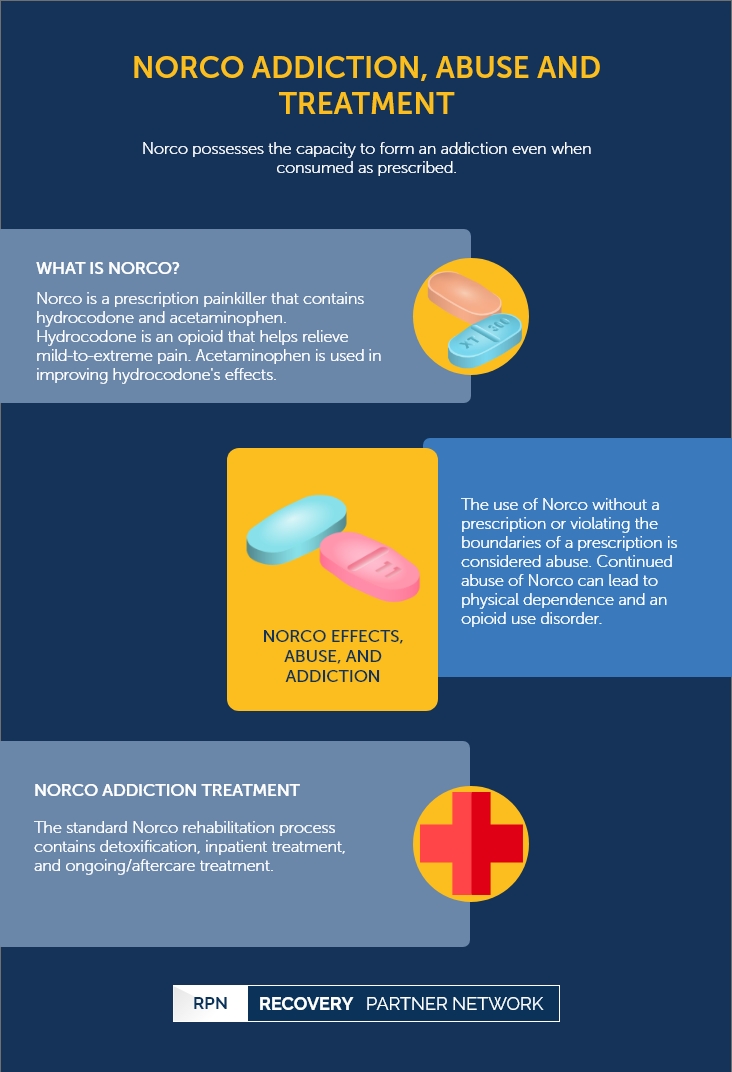Norco possesses the capacity to form an addiction even when consumed as prescribed.
Norco Addiction, Abuse and Treatment
Opioid
- Hydrocodone/paracetamol addiction
- Buprenorphine/Naloxone addiction
- Central nervous system depressant
- Codeine addiction
- Dextropropoxyphene addiction
- Fentanyl abuse
- Hydromorphone addiction
- How Long do Opioids Stay in Your System?
- Hydrocodone addiction
- Kava addiction and abuse
- Loperamide addiction
- Lortab addiction
- Medical prescription opioid
- Methadone addiction
- Morphine addiction
- Norco addiction
- NyQuil addiction
- Opioid use disorder
- OTC substance abuse
- Oxycodone addiction
- Oxycodone/paracetamol addiction
- Opioid epidemic
- Lean addiction
- Pethidine addiction
- Snorting Oxycodone
- Synthetic Opioids
- Tramadol addiction
Norco addiction | Table of Contents
What is Norco?
Norco is a prescription painkiller that contains hydrocodone and acetaminophen. Hydrocodone is a potent opioid that helps relieve mild-to-extreme pain. Acetaminophen, an active ingredient in Tylenol, is a less potent pain reliever used in improving hydrocodone’s effects.
Norco is most commonly prescribed in three doses, such as 5 mg, 7.5 mg, or 10 mg of hydrocodone paired with 325 mg of acetaminophen. Until the FDA restricted the levels of acetaminophen in medications, Norco had the lowest amount of acetaminophen in any hydrocodone based medications. Currently, Norco holds the highest levels of acetaminophen allowed (325 mg), which is slightly higher than the 300mg present in Vicodin.
Norco Effects, Abuse, and Addiction
Norco is regulated as a Schedule II drug under the US drug classifications, which indicates its potential for abuse and its effectiveness in medical treatment. The use of Norco without a prescription or in a manner that violates the boundaries of a prescription is considered abuse. Continued abuse of Norco can contribute to physical dependence and an opioid use disorder. Prolonged use or abuse of Norco may cause the formation of dependence, tolerance, and withdrawal.
Patients who are prescribed Norco may also form an addiction to their medication even when following the guidelines of their prescription. Patients who form a reliance on their daily dosage may find it hard to differentiate between addiction and prescription.
Signs of a Norco addiction may include:
- Mixing Norco with other drugs to enhance its effects and induce a high.
- Spending more time using or getting Norco.
- Doctor shopping to get more of the medication.
- Forgoing relationships and responsibilities in favor of Norco use.
- Requiring higher doses of Norco to achieve the same relief.
FAQ
- What is Norco?
- What are the side effects of Norco?
- What happens if you mix Norco with alcohol?
- How long does Norco stay in your system?
Norco is a combination medication that contains hydrocodone and acetaminophen. This medication is used to alleviate moderate to severe pain.
The side effects of Norco may include nausea, constipation, vomiting, dizziness, lightheadedness, and drowsiness.
Mixing Norco with alcohol can lead to impaired judgment, confusion, breathing problems, coma, and increased risk of an overdose.
Norco may be detectable in the urine for up to three days after the last dose.
Norco Statistics
- Hydrocodone medications (including Norco) were reported to be the cause of over 100,000 emergency room visits in 2009.
- According to the American Association of Poison Control Centers, more than 23 million people above the age of 12 have abused hydrocodone-based medications.
- Almost two million people tried opioids, such as Norco, for the first time in 2012.
Norco Addiction Treatment
Recovery from Norco addiction is challenging, but it is achievable. The best way to recover from Norco addiction is with the support of a qualified care practitioner. The standard Norco rehabilitation process consists of the following steps:
Often referred to as detox, it is the process of extracting the drug from the body before rehab treatment. This process decreases the physical dependency on the medication while receiving adequate medical support in alleviating withdrawal symptoms when required. Detox is the primary step in the rehabilitation process.
Inpatient treatment programs provide patients with a residential facility and create an environment that is void of all temptations and distractions. It is an ideal environment for patients to solely concentrate on their recovery. During this period, recovering patients learn how to live their lives and manage their stresses without the use of Norco.
After the completion of the inpatient rehabilitation program, patients must continue receiving treatment in the form of counseling and support groups. Aftercare programs are vital in addiction recovery as it provides a safe space for patients to meet with support groups and receive the professional counseling they require. This program helps patients maintain their sobriety and prolong their recovery.
Recovery Partner Network
We aim to educate and empower. If you feel our library of resources does not cover your specific need, reach out to us, and we would be happy to help.
STATISTICS
© Copyright 2026


